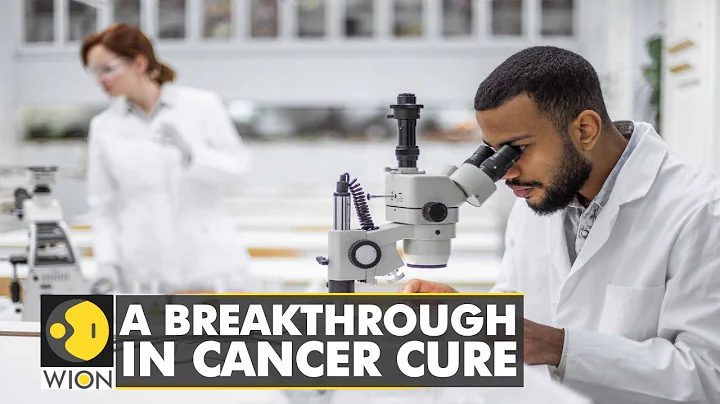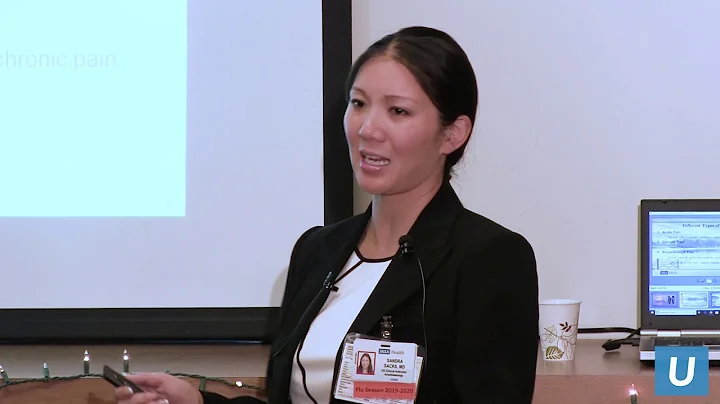Cancer is a disease that threatens human health and brings great pain to people. About 1/3 of cancer patients will suffer from varying degrees of pain during the treatment of the disease. But there is a symptom that is often seen in cancer patients. It usually does not attract enough attention, but once it occurs, it becomes a more troublesome problem than pain - abdominal distension.
Content points:
1. How to deal with postoperative abdominal distension?
2. What should I do if I have abdominal distension after chemotherapy?
3. How does intestinal flora alleviate the side effects of treatment?

01
How to deal with abdominal distension after surgery?
Postoperative abdominal distension is mostly caused by suppression of gastrointestinal function and excessive gas accumulation in the intestinal cavity. As the reaction to the surgical injury disappears, gastrointestinal peristalsis recovers, and the gastrointestinal discharge can be relieved on its own after anal exhaust. If abdominal distension persists for several days after surgery, there is no exhaust from the anus, and there are no bowel sounds , it may be intestinal paralysis caused by peritoneal inflammation or hypokalemia.
Severe abdominal distension can cause the diaphragm to be too high and affect the respiratory function. It can also compress the inferior vena cava and affect the vascular return. In addition, it can also affect the healing of the gastrointestinal anastomosis and abdominal wall incision, so it must be dealt with in time.
Patients should carry out timely activities according to their own conditions. Elderly and weak patients can first do exercises in bed, such as turning over/half-sitting/moving lower limbs, etc., to promote the recovery of gastrointestinal function and reduce abdominal distension and the formation of venous thrombosis in the lower limbs.

After surgery, you should choose foods that are easy to digest, low in sugar, , high in protein, and moderate in fat. Eat small, frequent meals and eat more mild foods. Make a reasonable food mix to ensure balanced nutrition; avoid irritation and allergies. , hypertonic foods, and foods that are too cold or too hot to produce gas, such as ice cream, sweet milk, soy milk, fried foods, and spicy and sour foods; dry foods can be eaten half an hour to an hour after the operation Liquid food, if necessary, you can lie down for 20-30 minutes after a meal to prevent or alleviate symptoms; eat small meals frequently to avoid excessive accumulation in the gastrointestinal tract, which may cause indigestion.
02
What should I do if I have abdominal distension after chemotherapy?
Abdominal distension after chemotherapy is one of the common complications of chemotherapy in cancer patients. Its incidence rate is about 15%, which is mainly caused by the weakening of gastrointestinal peristalsis function caused by chemotherapy drugs. As the disease progresses, patients lose weight and reduce muscle tissue, which may cause weakening of gastric smooth muscle and may also be one of the causes of abdominal distension in cancer patients. At the same time, disorders of intestinal flora and impaired digestion and absorption of food may also cause abdominal distension in patients.
1. Due to the stimulation of chemotherapy drugs, patients can use Mosapride , Domperidone , Simethicone and other drugs to reduce abdominal distension. At the same time, patients can be instructed to eat more fiber-rich foods. Note Eat small, frequent meals.
2. For abdominal distension caused by intestinal obstruction after chemotherapy, methods such as fasting, gastrointestinal decompression, anal canal exhaust, and stomach tube injecting edible oil to lubricate the intestines can be used.
3. To deal with post-chemotherapy vomiting and abdominal distension caused by the use of antiemetic drugs, patients should stop taking the drugs, and drugs that promote intestinal motility such as mosapride can be added to relieve symptoms.
03
How does intestinal flora alleviate the side effects of treatment?
According to previous research, various specific microbiota can affect the efficacy of various conventional chemotherapy. In addition, some side effects caused by chemotherapy are often so severe that patients cannot receive sufficient doses of compounds or sufficient treatment time, while recent research It shows that intestinal microorganisms can significantly reduce the side effects of chemotherapy and increase patients' tolerance, thereby achieving better therapeutic effects.
In a new study recently published in the authoritative journal Scientific Reports, scientists found that experimental mice receiving chemotherapy drugs will have the following reactions at the same time:
1. Changes in intestinal bacteria and tissues;
2. Blood and brain Showing signs of inflammation;
3. Behavioral fatigue and cognitive impairment.
This study is the first to examine the various changes in the body caused by chemotherapy. The study concluded that regulating intestinal flora can not only calm the common side effects of chemotherapy such as nausea and diarrhea, but also alleviate the common side effects of cancer survivors. Some adverse reactions.

Currently, some clinical trials are applying this strategy of regulating intestinal flora to cancer immunotherapy. The active biological products used also range from simple microorganisms to complex ones, such as the intervention of a single strain to a combination of 50 or more bacterial taxa and strains.
recommends using microecological therapy and supplementing Bacteroides fragilis BF839 to help the body alleviate the toxic side effects of radiotherapy and chemotherapy, inhibit the growth of tumor cells, and reshape the autoimmune microcirculation. In a normal healthy human body, Bacteroides fragilis BF839 accounts for more than 32% of the total bacteria to maintain the balance of the human body's microenvironment . Bacteroides fragilis BF839 can inhibit tumor growth, balance the immune system, and remove antibiotics from the body. It originates from the human body and has no toxic side effects.
I am Tan Taofeng, director of the Department of Nutrition. I focus on sharing knowledge about medicine and cancer rehabilitation. If you have any questions or need anti-cancer recipes, please follow and leave a message. I will answer all questions.





















